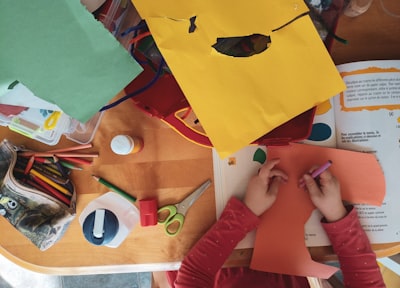As early childhood educators, we are tasked with preparing young children for success in school and life. We need to have a strong foundation of knowledge and skills to do this effectively. Whether you’re browsing online schools for early childhood education associate degree or bachelor’s degree programs or you’re already an established teacher at a preschool or kindergarten level, these are some of the top skills that you will need.
Supporting Growth and Development

The top skills that early childhood educators need are the ability to support children’s growth and learning. This includes understanding how children develop and learn and having the knowledge and skills to create and implement a curriculum that supports children’s growth and learning.
To create a curriculum that supports children’s growth and learning, early childhood educators need to understand the different domains of development, including cognitive, social-emotional, physical, and language. They should also be familiar with the early childhood learning standards, which set out the knowledge and skills that children are expected to have by the end of each stage of development.
The early childhood educator’s role is not just to teach the children the skills and knowledge specified in the early childhood learning standards but also to help them develop as individuals. This includes helping them to create a sense of self-awareness, self-control, and empathy.
Reflection and Continuous Learning
Early childhood educators need to constantly learn and update their knowledge and skills to support children’s growth and learning. They need to be familiar with the latest research on child development and education, and they should be able to apply this research to their teaching.
The ability to reflect on their practice and seek continuous learning opportunities is another of the top skills early childhood educators need. This involves examining their teaching methods and strategies and considering ways to improve their skills. It also consists of staying up-to-date on the latest research and developments in early childhood education and seeking professional development opportunities to learn about new approaches and best practices. Being able to reflect on their practice and seek continuous learning opportunities is vital for early childhood educators because it allows them to constantly improve their skills and stay current on the latest research. It also helps them stay motivated and engaged in their work, which is essential for providing quality early childhood education.
Working As Part of a Team

Working as part of a team is one of early childhood educators’ most essential skills. This includes working with other educators, caregivers, and families. It also includes working with other professionals involved in the child’s care, such as social workers or therapists.
Early childhood educators need to be able to collaborate and communicate with others to create a supportive environment for the children in their care. They need to share ideas and resources and work together to provide the best possible care for the children.
Teamwork is also vital for creating a positive learning environment. Educators can create a supportive community where children feel safe and encouraged to explore and learn by working together.
Teaching Children of Different Ages and Abilities
Working with children of different ages and abilities is a critical skill for early childhood educators. They need to be able to adapt their teaching methods and approaches to meet the needs of each child. They also need to be patient and able to handle challenging behaviors. Early childhood educators need to be able to create a nurturing and stimulating environment for young children that helps them learn and grow.
The top skills that early childhood educators need all involve being able to understand and work with children in the early stages of their lives. This includes working with them on their cognitive, physical, and social development. Early childhood educators also need to create a supportive and positive learning environment for their students.










